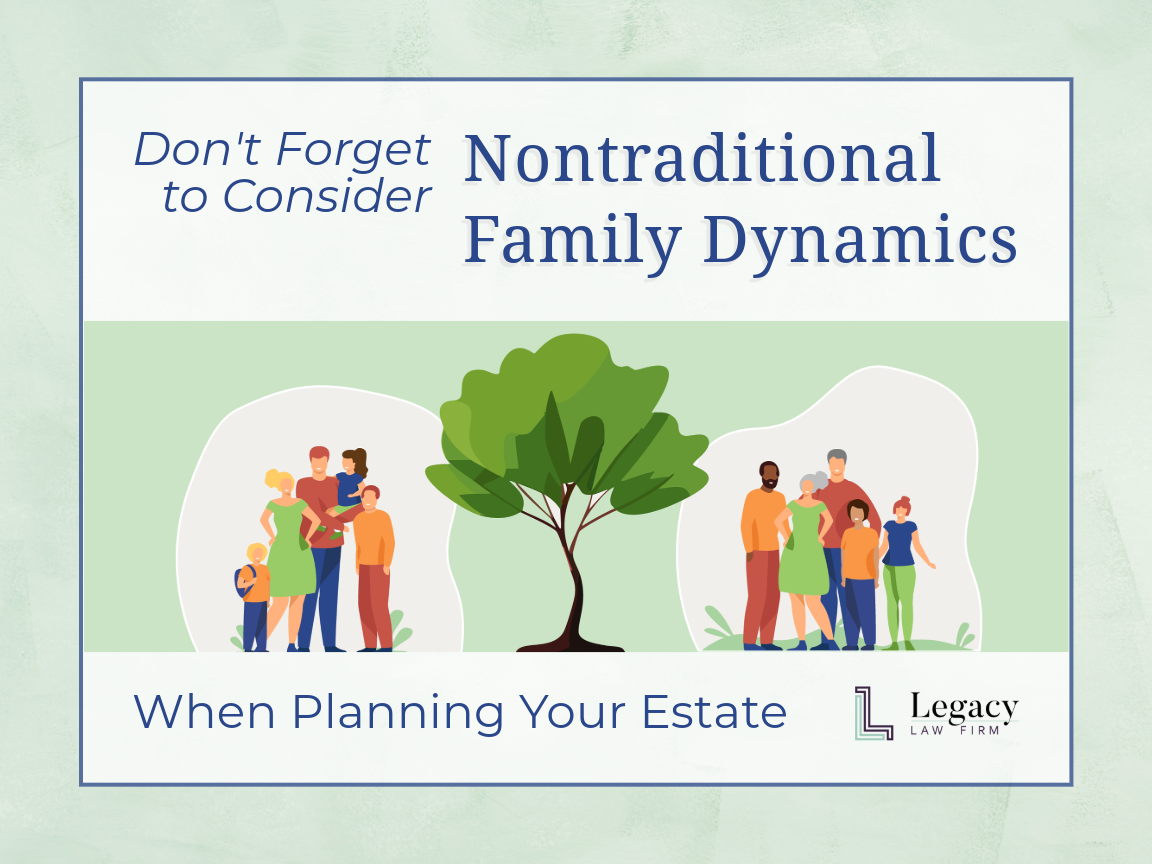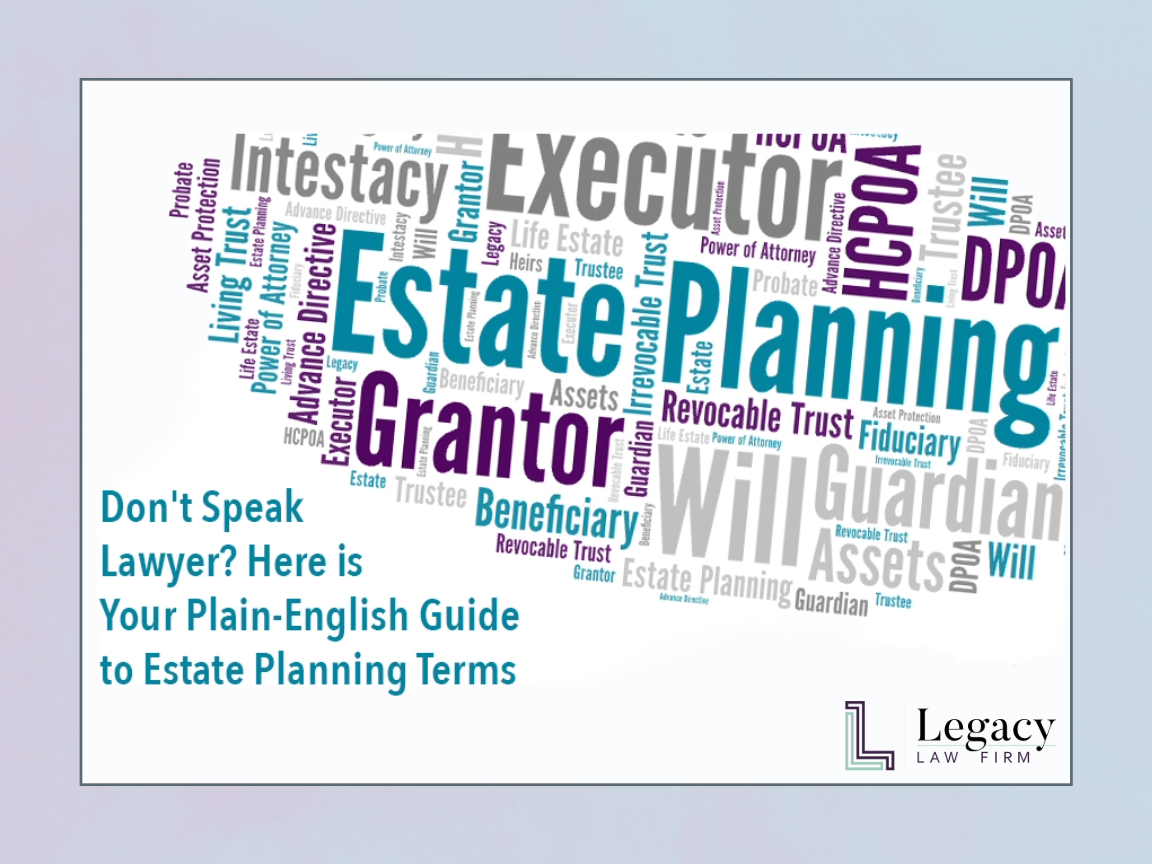5 Myths We Tell Ourselves About Estate Planning
Do you wonder if Estate Planning is really necessary? Don’t let these myths get in your way!
Estate planning is an essential part of securing your future and protecting your loved ones. While the decisions you must make during estate planning aren’t complicated, moving forward with an estate plan requires us to face the fact that we will not live forever. This thought often stops people in their tracks and has them putting off estate planning.
Just as frequently, myths and misconceptions about estate planning are what hold people back from taking the important first step. Below, we tackle some of the most common estate planning myths and explain why they shouldn't stop you from meeting with an estate planning attorney.
Myth #1: Estate planning is only for the wealthy
This is a popular misconception! Estate planning isn't just about mansions, yachts, and million-dollar stock portfolios. It's also about ensuring your wishes are carried out throughout your life and upon your death, regardless of the size of your estate. Even if you don't consider yourself wealthy, you likely have assets you care about – a house, a car, savings, or treasured possessions. An estate plan guarantees your loved ones inherit these assets according to your desires while avoiding unnecessary delays and complications during an already challenging time.
Estate planning is not just about money.
Sometimes the best planned legacy is ensuring your ones are not left with a mess.
One of the most important truths about estate planning is that it is about more than just money. Everyone knows that a will, which is one of the most common estate planning tools, allows you to determine who gets your assets upon your death. However, an effective estate plan should also address what happens if you are unavailable or become incapacitated and someone has to make decisions on your behalf and manage your affairs. If you do not have a comprehensive estate plan, the court will have to appoint someone to make your medical and financial decisions for you for the duration of your incapacity. If the court has to appoint a guardian, it is possible you end up with a court appointed lawyer or social worker handling your finances and making medical decisions.
Myth #2: I'm young, so I don't need an estate plan
Age is irrelevant. Life is unpredictable, and having an estate plan in place, no matter your age, provides peace of mind knowing your wishes will be respected. If you do not have a plan in place, state law will decide who gets your assets, and many times, the government’s best guess as to what you would have wanted is contrary to your actual desires.
Another important aspect of your estate plan is that it can also designate guardians for minor children and outline your preferences for medical care in case of incapacitation.
Myth #3: My spouse will automatically inherit everything
While this is true for some assets held jointly, it's not always the case. Without a well drafted estate plan, state laws dictate how your assets are distributed, which may not align with your wishes. Under North Carolina intestate succession laws, your spouse may not inherit everything if there are children. Most people assume that a surviving spouse will become the sole owner of the marital home. Too many times, I’ve had to break the news that because their name is not on the deed and there isn’t a will leaving them the home, they actually own it jointly with other family members.
Relying on NC intestacy laws to provide for your spouse may leave your spouse unprotected.
Estate planning gives you and your spouse the opportunity to sit down and proactively plan what happens to your property and accounts when either of you dies, ensuring that the survivor is taken care of and there won’t be any surprises down the road.
Myth #4: Creating an estate plan is complicated and expensive
The estate planning process is less complicated than you think when you work with an experienced estate planning attorney. While it is true that complex plans for high-net-worth individuals often require in-depth planning utilizing different types of trusts and corporations, estate plans for the average person can be straightforward and affordable. Even if your means are modest, you should consider who gets your hard-earned savings when you die. Our firm offers affordable estate planning for all stages of your life and for all levels of wealth.
If you feel that an estate plan is too expensive, one thing you should consider is that there are several costs involved in probating an estate through the court. When you probate an estate, you have to pay several court filing fees as well as a court commission based on a percentage of the fair market value of any assets that pass through the estate. In North Carolina, as of January 2024, the court’s commission is $0.40 per $100 and is capped at $6,000. Your probate estate includes all your solely owned assets including your personal property (i.e. household goods, jewelry, recreational equipment), financial accounts, life insurance, tax refunds, etc. A commission based on the value of these assets can quickly add up.
By having a well drafted estate plan, you can minimize any potential costs your heirs would have to pay before receiving their inheritance.
Myth #5: My estate plan is set in stone
Life constantly changes, and your estate plan should change with you. It is important to review and update your estate plan regularly, especially after major life events like marriage, birth or adoption of a child, or significant changes in your assets or financial situation.
Your estate plan can and should evolve and change with your life.
Work with your estate planning attorney to periodically review and update your estate plan
We strongly recommend pulling out your estate planning documents at least every 3 years to ensure that no changes are needed. By reviewing your estate plan with an experienced estate planning attorney, you can ensure that there have not been any changes in the law which would impact your estate plan.
Don't Let These Myths Hinder Your Future
By understanding the truth about these common myths, you can take control of your future today and begin shaping the legacy you will leave behind.
Having a comprehensive estate plan brings peace of mind and protects your loved ones. Contact Legacy Law Firm today to schedule a consultation and discuss your estate planning needs.















